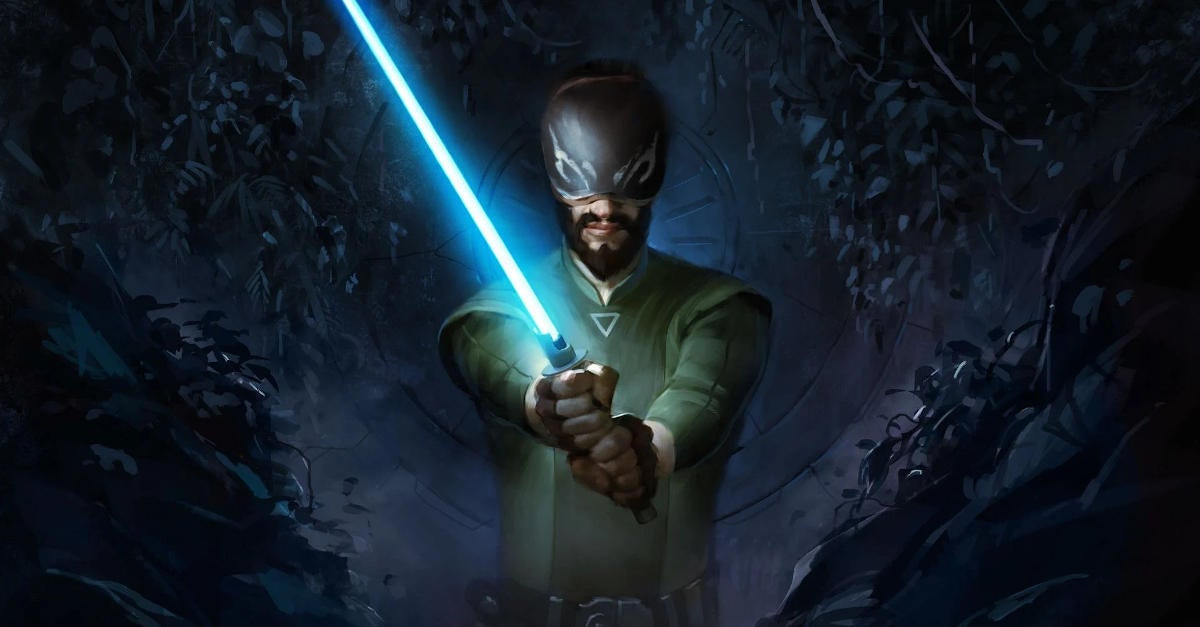The Ministry of Ungentlemanly Warfare Review: A Lackluster Tribute to Real Heroes
The war story never quite knows what tone it wants to explore.
In the 80 years since World War II, the conflict remains as prominent as ever on the big screen, as it's hard to find villains as frightening as Nazis. Whether we're given more grounded interpretations of the battle with movies like The Dirty Dozen, Saving Private Ryan, or The Zone of Interest, there's also been more stylized takes on that point in history with projects like Inglorious Basterds, Jojo Rabbit, or the horror-fueled Overlord. Then you have Guy Ritchie's new film, The Ministry of Ungentlemanly Warfare, which struggles with finding the right balance of authenticity and exaggerated adventure that, even with a talented cast, fails to make for a fulfilling tribute to the real-life heroes that inspired it.
The story is inspired by the real-life Operation Postmaster, which saw Winston Churchill sending a covert team to a small island off the coast of West Africa to sink a ship integral to Germany in 1942. The mission was so covert, in fact, that Churchill himself would have to deny any knowledge of the situation, so the team, led by Gus March-Phillipps (Henry Cavill), would either face capture by the Germans or imprisonment by the British if they were caught. This doesn't intimidate Gus in the slightest, as he knows that his teammates Anders Lassen (Alan Ritchson), Freddy Alvarez (Henry Golding), Geoffrey Appleyard (Alex Pettyfer), and Henry Hayes (Hero Fiennes Tiffin) are all capable of pulling off the task at hand, and even facing dire consequences, will revel in killing as many Nazis as possible along the way.
Initial glances at Ministry in trailers drew immediate comparisons to Quentin Tarantino's Inglorious Basterds, as the marketing leaned much more highly into the exploitation vibes of the picture. This comparison isn't necessarily unwarranted, as Basterds is one of the best WWII "men on a mission" movies of the last two decades, and Ministry's premise of a ragtag group reveling in killing Nazis marks a similar agenda to the protagonists in the Tarantino flick. Even though Gus encourages the rest of his team, "Don't forget to have fun," while infiltrating a Nazi camp, this seems more like a request to the audience to have fun because, at that point in the film, the experience couldn't make up its mind on what it wanted to be.
Ritchie made a name for himself with movies like Lock, Stock and Two Smoking Barrels and Snatch, both of which delivered American audiences a fresh look at the UK's criminal underworld in compelling and comedic ways. The timing of these releases in 1998 and 2000, respectively, made it seem like Ritchie was the UK's answer to Tarantino, a reputation Ritchie both deserved and lived up to. However, by ultimately pivoting to big-budget studio films like two Sherlock Holmes movies, King Arthur: Legend of the Sword, and Aladdin, long gone were the grit and abrasiveness of his earlier efforts, instead smoothing off all of his rough filmmaking edges to make movies that appealed to wider audiences. Even if Ministry seems like it's an attempt to recapture his roots with a straightforward spy story that has plenty of blood and moments of charm, Ritchie still struggles to fully commit to offering anything unconventional.
The biggest issue that Ministry suffers is its reliance on telling audiences more than showing audiences whatever it's trying to get across. The scenes in which Churchill (Rory Kinnear) and Gus talk about assembling a team feature Gus explicitly telling his superiors the backgrounds and character descriptions of the other figures, which audiences are just expected to buy into as opposed to actually witnessing. Given the stature of Ritchson's Anders, it's easy to believe he's a killing machine, and subsequent scenes do show off these abilities, though this is the closest we get to learning much about him. Whether it's Freddy's penchant for explosives or Geoffrey's resiliency, audiences are just expected to accept what Gus tells us about them without the characters ever having to do much by way of showcasing these traits. In what might be the most egregious instance of this, the villainous Heinrich Luhr (played by Basterds' Til Schweiger) is given an ominous introduction as being the most deadly threat the team will face, yet the film never actually demonstrates what makes him so vile. While we do see that he has tied up someone in a Nazi base, seemingly as a means of torture, we never actually see Heinrich delivering anything to back up his introduction, with Ritchie once again just telling audiences how they have to feel instead of organically evoking emotions.
Making any movie based on true-life situations is a challenge, as storytellers have to find the balance between honoring the reality and making for a more compelling movie, so we can somewhat excuse the story for not making bigger swings with its characters that could betray the reality. This narrative specifically, though, carries so little weight due to the team themselves not running into any major setbacks or conflicts along the way. They seem less like real WWII heroes and more like the Avengers in how effortless they make it all seem to enter one death-defying situation after the next and emerge unscratched, and while a key component in virtually every mission-oriented war movie features characters having to improvise an unconventional solution to unplanned obstacles, but Ministry denies us much of those compelling story shifts. The premise of the film sees Gus being enlisted to pull off the mission, and the film showcases his direct route towards the mission, without any real roadblocks or setbacks along the way. The narrative structure feels like the first and third acts of a movie that left out the meat of the second act in which our protagonists face any conflicts or earn the audience's empathy.
The final product of Ministry might not be anything especially cohesive, but that isn't to say that there aren't still scenes to enjoy. Watching Gus or Anders kill Nazis in a variety of ways is always a welcome sight (though, while violent at times, these scenes never go full-bore with their gruesome deaths and feel like they were shot to potentially allow for a PG-13 instead of an R rating), and the less bombastic scenes of Eiza González's Marjorie Stewart and Babs Olusanmokun's Heron pulling off more mundane missions on land while Gus and Co. sail to their destination are a bit more charming and engaging than the Nazi-killing sprees.
The Ministry of Ungentlemanly Warfare is mostly a harmless outing that isn't actively bad, and even has isolated incidents of charm, if even just accidentally. It's hard to pull together a cast like this and end up without anything entertaining, so the stars are the ones who deserve the most credit in the experience. The overall product, however, feels like the distillation of Ritchie's career, in that he wants to embrace the roots of his more effective and abrasive cinematic sensibilities yet also doesn't want to commit to anything too provocative that won't prevent Disney from offering him Aladdin 2. From the story to the direction to the dialogue, Ministry both wants to be slick, stylish, and sarcastic yet also be an authentic homage to the accomplishments of the real-life heroes that inspired it, instead feeling like an entirely inoffensive and forgettable film that would have otherwise been released straight to VOD if not for a somewhat recognizable cast.
Rating: 2 out of 5
The Ministry of Ungentlemanly Warfare hits theaters on April 19th.




